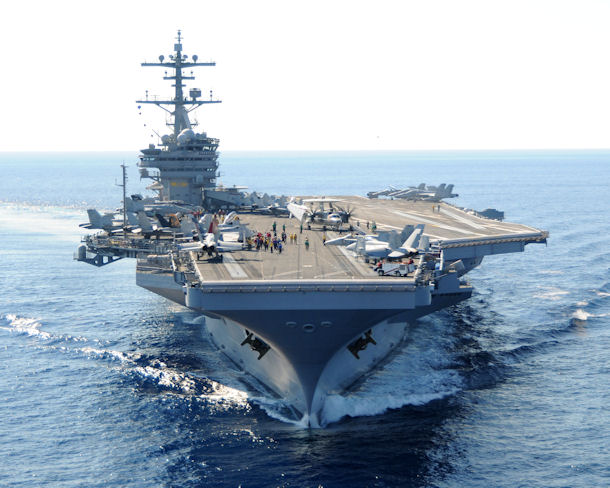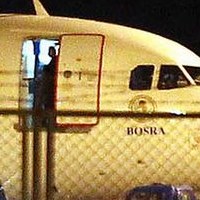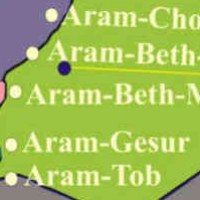![]()
Countdown to Conflict: Military Build-Up around Syria
On nov. 29 DEBKAfile reported:
DEBKAfile’s military sources report that the four-Katyusha rocket volley from S. Lebanon which hit Galilee in northern Israel in the small hours of Tuesday, Nov. 29, was initiated by Hizballah commanders in South Lebanon although it was claimed by the al Qaeda-linked Abdullah Azzam Brigades. Hizballah activated a Palestinian cell it controls in the Ain Hilwa refugee camp near Sidon on behalf of its ally in Damascus, arming the cell with the rockets and marking out their firing positions and targets in Israel’s Galilee.
One Katyusha blew up near the border, two inside a Galilee moshav damaging a hen coop and a fourth in a wood outside Maalot, causing damage but no injuries.Israeli artillery returned the fire.
Officers in the IDF northern command familiar with the terrain across the border, assert that those firing positions are located in a sector under Hizballah’s exclusive control. It is off limits to any outsiders without the Iran-backed Shiite group’s permission and knowledge.
IDF sources read the rocket attack as the Assad regime’s last warning to the US, fellow NATO members and Gulf nations that Israel would be first to pay the price for their planned intervention in Syria. It would trigger a Lebanese-Israel border clash followed by a massive rocket assault on Israel. More Katyusha incidents are therefore to be expected to emphasize the message.
In Istanbul meanwhile, Turkish Foreign Minister Ahmet Davutoglu said his government hopes that a military intervention in Syria will never be necessary “but is ready for any scenario.”
A regime which tortures its own people has no chance of survival, he added. Turkey may consider setting up a buffer zone on its border in co-ordination with the international community in the event of a massive exodus of refugees from Syria, its foreign minister said on Tuesday.
This was the first time, DEBKAfile’s sources note, that Turkey has publicly declared itself ready for direct military intervention in Syria in addition to providing bases in support of an allied operation.
On nov. 28 DEBKAfile reported:
A group of military officers from NATO and Persian Gulf nations have quietly established a mixed operational command at Iskenderun in the Turkish Hatay province on the border of North Syria, DEBKAfile’s military sources report. Hailing from the United States, France, Canada, Qatar, Saudi Arabia and the United Arab Emirates, with Turkish officers providing liaison, they do not represent NATO but are self-designated “monitors.” Their mission is to set up “humanitarian corridors” inside Syria to serve the victims of Bashar Assad’s crackdown. Commanded by ground, naval, air force and engineering officers, the task force aims to move into most of northern Syria.
Laying the groundwork for the legitimacy of the combined NATO-Arab intervention in Syria, the UN Independent International Commission set up to assess the situation in Syria published a horrendous report Monday, Nov. 28 on the Assad regime’s brutalities. It documented “gross violations of human rights” and “patterns of summary execution, arbitrary arrest, enforced disappearance, torture including sexual violence, as well as violations of children’s rights.”
Syrian foreign minister Walid al-Moallem fought back by showing a press conference Monday photos of dismembered bodies of Syrian soldiers as proof of the atrocities he claimed were perpetrated by the anti-Assad opposition. He also complained that “the Arab League and others refuse to believe that there is a foreign conspiracy targeting Syria.”
DEBKAfile military sources report exclusively that the Western-Arab intervention in the Syrian crisis is in an advanced state of operational planning. It entails a buffer zone in northern Syria encompassing beleaguered towns, primarily Idlib, Rastan and Homs – but also Aleppo, Syria’s largest city (2.5 million mostly Sunni and Kurdish inhabitants).
The protest movement never caught on in Aleppo, home to the moneyed classes who run the country’s financial and trading sectors, and it was confined to the highway network feeding the city. Therefore, for the Assad regime, bringing Aleppo into the “humanitarian corridor” system under foreign military control will round of the damage caused by the economic sanctions approved this week by the Arab League. Losing Aleppo will fatally hammer the economy into the ground and rob the Syrian ruler of funding for sustaining his military crackdown to wipe out the unrest in the areas remaining under his control.
Aware of this threat, Foreign Minister al-Moallem accused the Arab League of declaring economic war on Syria.
On nov. 27 DEBKAfile reported:
Twenty-four hours before the Arab League Sunday, Nov. 27, clamped down sanctions on the Assad regime, the first ever against a member state, the armies of Syria’s seven neighbors were already scrambling into position on standby on its borders for acts of retaliation. Military suspense mounted after the Arab League vote to cut off transactions with Syria’s central bank, withdraw Arab funding from projects and other painful sanctions over Bashar Assad’s refusal to halt his crackdown on protest.
DEBKAfile’s military sources report Israeli armored brigades pushed forward up to the Lebanese and Syrian borders; Ankara placed three armored brigades, its air force and navy in astate of preparedness, likewise Hizballah and the Lebanese and Jordanian armed forces, while the US and Russia are in the midst of a naval buildup opposite Syrian shores.
Military sources in the Gulf report that 150 Iranian Revolutionary Guards specialists had landed at a military airport south of Damascus on their way to Lebanon to join Hizballah which began bringing its rockets out of their hideouts.
Ahead of the Arab League vote, Qatar and Turkey were reported to be airlifting “volunteers” from Libya to fight alongside the rebel Free Syrian Army, some also transporting weapons, whereas Russia has begun another airlift to deliver top-notch missiles for Assad’s forces.
Our sources report the two key items are advanced Pantsir-1 (SA-22 Greyhound) anti-air missiles for breaking a no-fly zone against most types of aircraft should one be imposed and supersonic Yakhont (SS-26) missiles for targeting vessels blockading Syria’s shores at a distance of 300 kilometers.
On nov. 26 DEBKAfile reported:
The Syrian crisis assumed a big power dimension this week with the build-up of rival United States and Russia naval air carrier armadas in Syrian waters, DEBKAfile’s military sources report.
The USS George H.W. Bush arrived Wednesday, Nov. 23, in the wake of the three Russian warships anchored earlier opposite Tartus which established a command post in the Syrian port. They will be augmented by Russia’s only air carrier the Admiral Kuznetsov, which is due in mid-week.
By deploying 70 ship-borne fighter-bombers plus three heavy guided missile cruisers and five guided missile destroyers opposite Syria, Washington has laid down military support for any intervention the Arab League in conjunction with Turkey may decide on.
Bashar Assad can see for himself that Washington has hoisted a nuclear aerial umbrella to protect its allies, Israel, Turkey, and Jordan, against the retaliation his armed forces high command pledged Friday for the deaths of six Syrian air force elite pilots in an ambush Thursday.
For some time, Ankara has been weighing the creation of a protected haven for rebels and refugees inside Syria. France has proposed slicing “humanitarian corridors” through Syria for them to flee safely from military tank and gunfire and secure supply of food, medicines and other essential supplies to the cities under army siege.
Both plans would depend on being safeguarded by substantial ground and air strength inside Syria which would certainly face fierce resistance from Assad’s military.
The Arab League has scheduled weekend meetings to decide how to proceed after Damascus ignored its Friday deadline for accepting hundreds of monitors. Saturday, Nov. 26, AL finance ministers will discuss economic sanctions. In the past 48 hours, at least 70 people were reported killed as the Syrian army continued its crackdown in the face of spreading armed opposition.
The Russian Kuznetzov carrier and its accompanying strike vessels will join the three Russian warships parked opposite Tartus for more than a week. It will enter the same Syrian offshore waters as the USS Bush and the US Sixth Fleet, which is permanently posted in the Mediterranean.
The Syrian crisis is therefore building up to a superpower face-off unparalleled since the Cold War between America and the Soviet Union ended in the nineties, DEBKAfile’s military sources note.
While Washington clearly stands ready to back operations against the Assad regime, Moscow is drawing a red line around his presidential palace in Damascus. The Kremlin is warning the US, NATO and the Arab League that they will not be allowed to repeat their feat in Libya of overthrowing Muammar Qaddafi against Assad.
In the face of this escalating big power standoff and the high possibility of the Syrian ruler deciding to lash out against his country’s neighbors, the Israeli, Jordanian and Turkey armies have declared a high state of war preparedness.
On Nov. 25, DEBKAfile reported:
Israeli and Jordanian armed forces declared a state of preparedness Friday, Nov. 25, after the Syrian General Command accused an “armed terrorist” group of an ambush killing 10 airmen including 6 elite pilots on the Homs-Palmyra road Thursday, “with the involvement of foreign parties, the foremost of which is Israel.”
DEBKAfile’s military and intelligence sources report the ambush was another of the major operations against Assad regime’s most sensitive targets executed by the Free Syrian Army this week.
It took place at a point on the highway east of Palmyra on the fringe of the Syrian Desert and close to the Syrian Air Force base at Tiyas.
The official statement aired on Syrian state TV said the attack claimed the lives of six elite pilots, one technical officer and three technical sub-officers of the airbase.
Our sources add that the rebel army must have penetrated the highest levels of Syria’s military intelligence command for the attack and was clearly receiving targeting data from inside the armed forces.
The attack took place two days after the Free Syrian Army using rocket grenade launchers and heavy machine guns smashed into the Air Force Intelligence base of Harasta near Damascus, killing at least 10 Syrian troops. The ruling Baath party headquarters in Damascus was also attacked on Thursday.
The official statement broadcast Friday described the pilots as “qualitatively trained in piloting modern military aircraft” and “prepared to carry out “the sacred duty of liberating the land and restoring the usurped rights.”
It went on to say: “The General Command… considers that the beneficiaries of this terrorist act are the enemies of the homeland and the nation, foremost being Israel.”
The Syrian military vowed “to cut every evil hand that targets Syrian blood, and decisively confront all who threaten the homeland’s security and stability.”
The 24-hour lapse between the attack and the official statement indicated the level of dismay and confusion in Damascus over the sudden assault on the most stalwart buttress of the Assad dynasty in the nine-month crisis and a body blow to his regime.
Bashar Assad cannot afford to avoid retaliating. If he does, it will be an admission that the backbone of his armed forces is falling apart and out of control.
Since there is no knowing what form his revenge will take, Israel, Jordan and most likely Turkey too were braced Friday for trouble.
Assad no doubt took into account that bombing Free Syrian Army training bases across the border in Turkey would bring forth a Turkish military strike. So for now, he decided to point the finger at Israel, a reliable standby when the regime has its back to the wall. Jordan, through which large arms supplies reach the Syrian opposition, may seem to Damascus to be easy prey for the bombardment or raid of bases hosting Syrian rebels.
In the heat of the crisis, the Syrian ruler allowed the deadline set by the Arab League of his acceptance of hundreds of monitors go by Friday without an answer. “It is a last chance, a new chance for Syria,” Turkish Foreign Minister Ahmet Davutoglu told reporters in Istanbul at a joint news conference with his Jordanian counterpart Nasser Judeh. By missing the deadline, Damascus faces possible economic sanctions spearheaded by the Arab League, which earlier this month suspended Syrian membership, amid growing international isolation.



 RSS
RSS











Countdown to Conflict: Military Build-Up around Syria | Middle East, Israel, Arab World, Southwest A http://t.co/n5lP44jW
Countdown to Conflict: Military Build-Up around Syria | Middle East, Israel, Arab World, Southwest A http://t.co/n5lP44jW